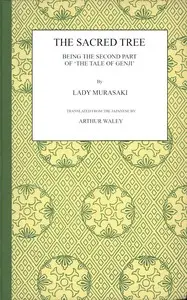"One of Our Conquerors — Volume 2" by George Meredith is a tale from the late 1800s that grapples with love, societal pressures, and finding your own path when family and reputation get in the way as the story explores the complex web of relationships between Nataly, Victor, and their daughter, Nesta, leading up to Nesta's potential marriage. It's about the emotional tightrope Victor and Nataly walk as they try to talk honestly about important issues while wrestling with worries about how their history might affect Nesta. As the story begins, you can sense the weight of decisions to come as Victor thinks about who might be a good match for Nesta, all while dealing with his own mixed feelings about what's happened and what's to come.

One of Our Conquerors — Volume 2
By George Meredith
In a world of societal expectations, a family navigates love, secrets, and the looming decision of a daughter's marriage, where the past threatens the future.
Summary
About the AuthorGeorge Meredith was an English novelist and poet of the Victorian era. At first, his focus was poetry, influenced by John Keats among others, but Meredith gradually established a reputation as a novelist. The Ordeal of Richard Feverel (1859) briefly scandalised Victorian literary circles. Of his later novels, the most enduring is The Egoist (1879), though in his lifetime his greatest success was Diana of the Crossways (1885). His novels were innovative in their attention to characters' psychology, and also portrayed social change. His style, in both poetry and prose, was noted for its syntactic complexity; Oscar Wilde likened it to "chaos illumined by brilliant flashes of lightning". Meredith was an encourager of other novelists, as well as an influence on them; among those to benefit were Robert Louis Stevenson and George Gissing. Meredith was nominated for the Nobel Prize in Literature seven times.
George Meredith was an English novelist and poet of the Victorian era. At first, his focus was poetry, influenced by John Keats among others, but Meredith gradually established a reputation as a novelist. The Ordeal of Richard Feverel (1859) briefly scandalised Victorian literary circles. Of his later novels, the most enduring is The Egoist (1879), though in his lifetime his greatest success was Diana of the Crossways (1885). His novels were innovative in their attention to characters' psychology, and also portrayed social change. His style, in both poetry and prose, was noted for its syntactic complexity; Oscar Wilde likened it to "chaos illumined by brilliant flashes of lightning". Meredith was an encourager of other novelists, as well as an influence on them; among those to benefit were Robert Louis Stevenson and George Gissing. Meredith was nominated for the Nobel Prize in Literature seven times.


















